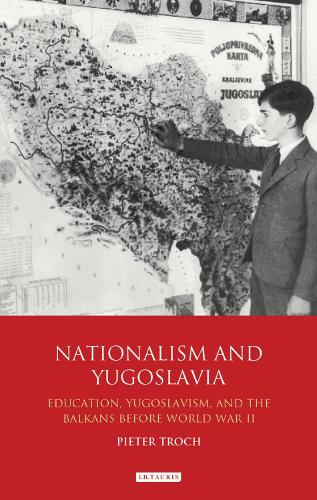
Nationalism and Yugoslavia: Education, Yugoslavism and the Balkans before World War II
(Hardback)
Publishing Details
Nationalism and Yugoslavia: Education, Yugoslavism and the Balkans before World War II
By (Author) Pieter Troch
Bloomsbury Publishing PLC
I.B. Tauris
18th August 2015
United Kingdom
Classifications
Tertiary Education
Non Fiction
Nationalism and nationalist ideologies and movements
949.7021
Physical Properties
Hardback
328
Width 138mm, Height 216mm, Spine 25mm
538g
Description
Created after World War I, 'Yugoslavia' was a combination of ethnically, religiously, and linguistically diverse but connected South Slav peoples - Slovenes, Croats and Serbs but also Bosnian Muslims, Macedonians, and Montenegrins - in addition to non-Slav minorities. The Great Powers and the country's intellectual and political elites believed that a coherent identity could be formed in which the different South Slav groups in the state could identify with a single Balkan Yugoslav identity. Pieter Troch draws on previously unpublished sources from the domain of education to show how the state's nationalities policy initially allowed for a flexible and inclusive Yugoslav nationhood, and how that system was slowly replaced with a more domineering and rigid 'top-down' nationalism during the dictatorship of King Alexander I - who banned political parties and coded a strongly politicised Yugoslav national identity. As Yugoslav society became increasingly split between the 'pro-Yugoslav' central regime and 'anti-Yugoslav' opposition, the seeds were sown for the failure of the Yugoslav idea. Nationalism and Yugoslavia provides a valuable new insight into the complexities of pre-war Yugoslavia.
Author Bio
Pieter Troch is currently Lecturer in History at the University of Ghent, where he completed his PhD.
